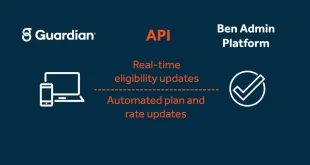
Understanding Your Health Needs:
The foundation of selecting appropriate health insurance begins with understanding your individual health needs. No two individuals are alike, and therefore, their healthcare requirements differ significantly. Factors such as age, pre-existing medical conditions, lifestyle habits, and family medical history play pivotal roles in determining the type and extent of coverage needed.
For instance, a young, healthy individual may prioritize coverage for preventive care, routine check-ups, and potential accidents or injuries, while someone with a chronic illness may require extensive coverage for medications, specialist visits, and hospital stays. By assessing your current health status and anticipating future healthcare needs, you can make informed decisions when selecting insurance plans.
Assessing Financial Considerations:
Apart from health considerations, financial factors also heavily influence insurance decisions. While it may be tempting to opt for the cheapest insurance plan available, it’s essential to weigh the costs against the benefits provided. Consider factors such as monthly premiums, deductibles, co-payments, and out-of-pocket maximums.
For individuals with limited financial resources, high-deductible plans coupled with health savings accounts (HSAs) can offer a balance between affordability and coverage. On the other hand, those who anticipate frequent healthcare utilization may opt for higher premium plans with lower out-of-pocket costs. By evaluating your budget and potential healthcare expenses, you can select a plan that offers adequate coverage without straining your finances.
Exploring Coverage Options:
The ever-expanding landscape of health insurance presents a multitude of coverage options, ranging from traditional fee-for-service plans to managed care models like health maintenance organizations (HMOs) and preferred provider organizations (PPOs). Each type of plan has its own set of pros and cons, making it essential to assess which aligns best with your needs.
Fee-for-service plans offer flexibility in choosing healthcare providers but often come with higher out-of-pocket costs. Conversely, managed care plans prioritize cost containment through networks of contracted healthcare providers, offering lower out-of-pocket expenses but limiting choice. Additionally, newer models such as accountable care organizations (ACOs) and bundled payment arrangements aim to improve coordination of care and reduce costs for patients with complex healthcare needs.
Considering Additional Coverage:
Beyond basic medical coverage, it’s essential to evaluate the need for additional types of insurance, such as dental, vision, prescription drug, and supplemental plans. While these coverages may incur additional costs, they can provide crucial financial protection against unexpected healthcare expenses not covered by primary insurance.
Moreover, individuals with specific health concerns, such as mental health conditions or chronic diseases, may benefit from specialized coverage tailored to their needs. Some insurance plans offer comprehensive mental health benefits, including therapy sessions, counseling, and medication management, while others provide disease management programs and wellness initiatives for chronic conditions like diabetes or asthma.
Utilizing Preventive Services:
Preventive care is a cornerstone of maintaining good health and can help detect potential health issues early, before they progress into more serious conditions. Many insurance plans now offer comprehensive coverage for preventive services, including annual wellness exams, vaccinations, screenings, and counseling services.
By taking advantage of these preventive benefits, individuals can not only improve their health outcomes but also reduce long-term healthcare costs associated with managing chronic conditions or treating advanced diseases. Moreover, staying up-to-date with preventive care guidelines can lead to a healthier, more productive life.
Navigating Open Enrollment Periods:
For individuals with employer-sponsored insurance or those purchasing coverage through the health insurance marketplace, understanding open enrollment periods is crucial. Open enrollment is the designated period during which individuals can enroll in or make changes to their health insurance plans for the upcoming year.
During this time, it’s essential to review your current coverage, assess any changes in health status or financial circumstances, and explore available options to ensure your insurance aligns with your evolving needs. Missing the open enrollment deadline may limit your ability to make changes to your coverage until the following year, so it’s crucial to plan ahead and act promptly.
Seeking Professional Guidance:
Given the complexity of health insurance options and the importance of selecting the right coverage, seeking guidance from insurance professionals or healthcare navigators can be immensely beneficial. These individuals can provide personalized assistance, explain complex insurance terms and concepts, and help you navigate the enrollment process.
Additionally, online resources such as insurance comparison websites, healthcare calculators, and consumer guides can offer valuable insights into different insurance plans’ features and costs, empowering you to make informed decisions about your coverage.
In conclusion, your health insurance should not be a one-size-fits-all solution but rather a customized plan tailored to your unique health needs, financial situation, and lifestyle. By understanding your health requirements, assessing financial considerations, exploring coverage options, considering additional benefits, utilizing preventive services, navigating open enrollment periods, and seeking professional guidance, you can make informed decisions that safeguard your health and financial well-being.
Remember, your health is your most valuable asset, and investing in comprehensive insurance coverage is a crucial step towards ensuring a healthier, happier future. Take the time to evaluate your options, ask questions, and choose a plan that provides the peace of mind you deserve. Your health, your coverage—it’s all about finding the perfect fit for you.
 Accident Lawyers Offshore Accident Lawyers – Offshore Injuries & Jones Act Lawyer
Accident Lawyers Offshore Accident Lawyers – Offshore Injuries & Jones Act Lawyer



